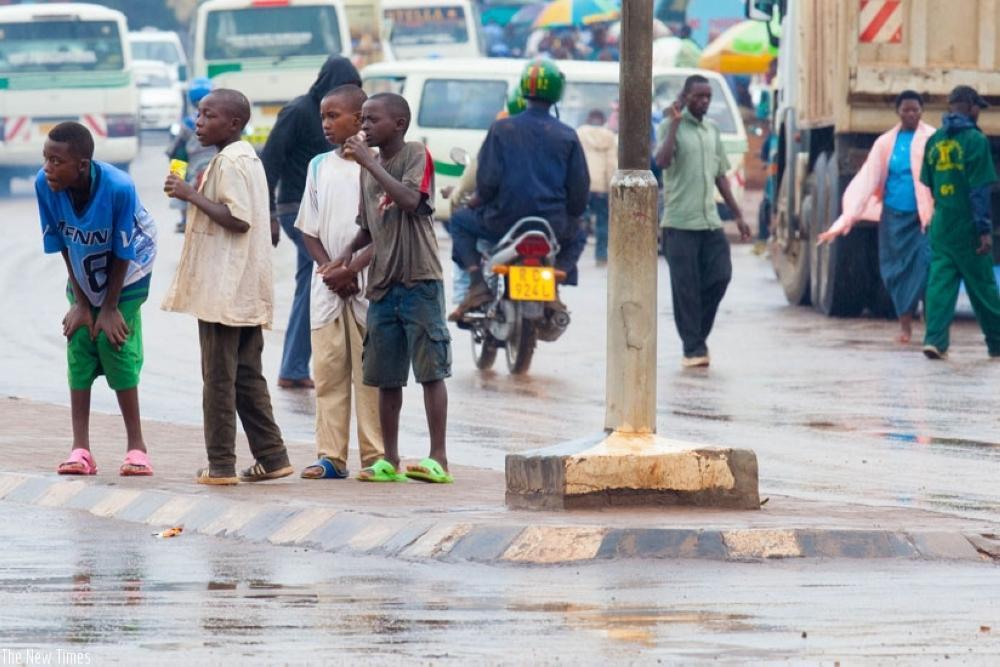Africa-Press – Rwanda. Rwanda is expanding support for vulnerable children, providing shelter, education, and counselling services, to help them return to safe family environments, according to the National Rehabilitation Service (NRS). Between 2020 and 2024, NRS centers received 2,955 children, while 761 children under 18 are still in care.
Programmes such as the Ministry of Local Government’s Community-Based Rehabilitation, Tubagorore mu Muryango, work with local authorities, psychologists, and community volunteers to reunite children with their families, guide daily routines, and ensure access to schooling.
A study by University of Rwanda, in partnership with SOS Children’s Villages and NRS, found that economic hardship is the leading cause of delinquent behaviour among children under 15, affecting 74.4 percent of cases. Family conflict was reported in 69.2 percent, rejection by relatives or the wider community in 61.5 percent, lack of trust within households in 46.6 percent, and peer influence in 46.2 percent of cases.
Jean Marie Vianney Niyitegeka, the Director of the Social and Health Rehabilitation Unit at NRS, explained that children living on the streets are exposed to multiple dangers affecting their health, safety, and future. Many face abuse, sexual exploitation, injuries, forced labour, substance abuse, poor sanitation, hunger, and malnutrition.
“Most are out of school, which increases the risk of illiteracy, unemployment, and lost economic opportunities. These conditions make street-connected children more vulnerable to stress, stigma, social isolation, and other psychological problems,” Niyitegeka said.
Rehabilitation and reintegration
He added that at rehabilitation centers, children are welcomed by animators who guide daily activities, provide mentorship, and help instil discipline. Centers offer safe shelter, food, clothing, shoes, and hygiene supplies.
“Each child is assigned a psychologist for counselling, and primary education programmes help children return to formal schooling before reintegration into their families.”
Niyitegeka noted that to support reintegration, the Ministry of Local Government, together with the Ministry of Gender and Family Promotion, the Ministry of Education, Rwanda National Police, the Ministry of Interior, the National Child Development Agency, and local authorities, is rolling out a community-based rehabilitation programme, known as ‘Tubagorore mu Muryango’.
He added that committees at district and village levels identify families facing conflict, cases of irresponsible parenting, school dropouts, and children at risk of troubled behaviour.
NRS conducts family tracing and therapy sessions before children are reunited with their families and also organises parental visits to help rebuild trust. After reintegration, NRS and district teams carry out regular home visits to check on children’s well-being, school attendance, and progress, with support from community committees and parents.
Preventing children from leaving home
The National Child Development Agency (NCDA) has enhanced efforts to prevent children from leaving their homes by supporting families and protecting vulnerable children.
“We have set up community structures, including child protection community volunteers, known as friends of the family who visit families and help resolve conflicts,” said Diane Iradukunda, the acting head of the child development, protection and promotion division at NCDA.
She noted that NCDA works with child protection and welfare officers at the district level and supports children forums, which advocate for peers facing challenges at home.
“Families are reached through ITETERO radio and TV programmes promoting positive parenting, while a toll-free line, 711, is available for children’s issues. Other measures include a child protection case management framework, trained caregivers such as Malaika Murinzi for children without parental care, psychosocial support, social protection programmes, and reintegration of children from streets, institutions, or correctional services,” she said.
The agency trains local leaders, judicial staff, police, community health workers, teachers, parents, and religious leaders, working with ministries and partners to keep children safely with their families.
For More News And Analysis About Rwanda Follow Africa-Press






